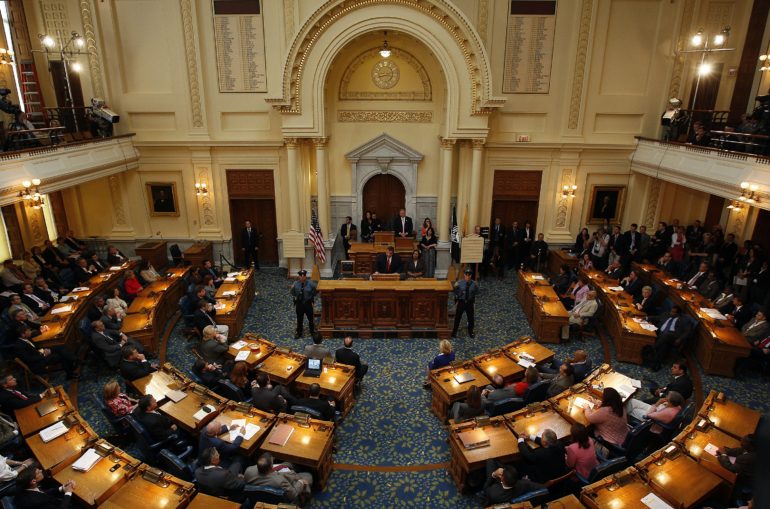By Joshua Burd
Affordable housing, transportation funding, home rule — they’re all public policy and political issues that affect New Jersey’s commercial real estate market.
It’s why those topics were front and center at this week’s RealShare NJ conference in Holmdel. During a panel titled “Industry Leaders Town Hall: A View from the Top,” speakers were asked to talk about which issues they see weighing on the industry.
Here is a sample of what they had to say:
Joel Bergstein, president of Lincoln Equities Group

“The opportunity that we have here in the state, which the state hasn’t taken full advantage of, is the fact that New York is becoming the San Francisco of the East Coast. Technology firms continue to grow, Wall Street is less important to the economy and New Jersey has the opportunity to become the Silicon Valley to New York. And the state is not fully realizing it.
“You had an (Urban Transit Hub) tax credit that was directed toward urban environments and cities. Jersey City is doing just fine — it is really the sixth borough. Some of that money has gone into Newark, which is appropriate because it’s a city that needs to recover and you need urban environments in order to do that. But on a much broader basis, the state needs to figure not only affordable housing, but workforce housing. There needs to be a really solid plan because market-rate housing is for people, really, at the higher end of the income spectrum. But the bigger challenge really is where do back office and county (employees) live? Will they have a place to stay that’s affordable to them?
“Regional planning becomes much more important. It cannot be purely on a home rule basis. Now, it’s idealistic because you can’t get both parties to agree on something as fundamental as transportation, but those are the things that are needed in order to sustain the economy in the state.”
Ron Ladell, senior vice president with AvalonBay Communities Inc.

“We have a situation right now where the governor and the Legislature can’t go to work each day and solve a (Transportation Trust Fund) problem that has been there for five years. So we have unemployment challenges and we’re purposely — purposely — putting construction workers out of work for months now, on end, with nothing in sight to resolve it.
“And we are now in the funny election season, since with the gubernatorial race, the primary is June 2017. So clearly the regulations and the challenges for businesspeople on the panel and in the audience continue to go in a problematic manner in New Jersey that maybe is unique, but at the end of the day — just like on the national level — on the state level, if the leaders of the political parties can’t get together for the good of the state and get these people back to work and solve this TTF issue … it’s absolutely crazy.
“I’m sure that all of you feel the same way — to get that done. And it’s not a matter of people in the room solving it. It’s people in the room saying to other people, ‘Go out and speak to your legislators.’
“It’s important to get this issue resolved. I’m more than happy to pay more for my gas tax if that money is going to be spent on transportation infrastructure. And if you want to get rid of the estate tax as one solution, sign me up right away. But get these people back to work, get money spent and invested in the economy and New Jersey will benefit as a result.”
Elie Rieder, founder, principal and CEO of Castle Lanterra

“We focus on workforce housing, so regulations don’t affect us as much because we’re not doing ground-up development at this point in the cycle. With workforce housing, we’re developing very close relationships with the local governments as soon as we acquire property. … So I think it’s about developing a direct relationship, communication and transparency — saying, ‘These are our goals. We appreciate the workforce housing, we appreciate working middle class families, we want them to have a better quality of life and we want to invest in that.’
“We want to help the community, but we need somebody to work with. And we’ve found in most cases, there’s a lot of cooperation, specifically around the workforce housing, where there’s less politics and it’s more about how we have a clear plan and do we have a partner to work with or not? And if not, we can go somewhere else.”










